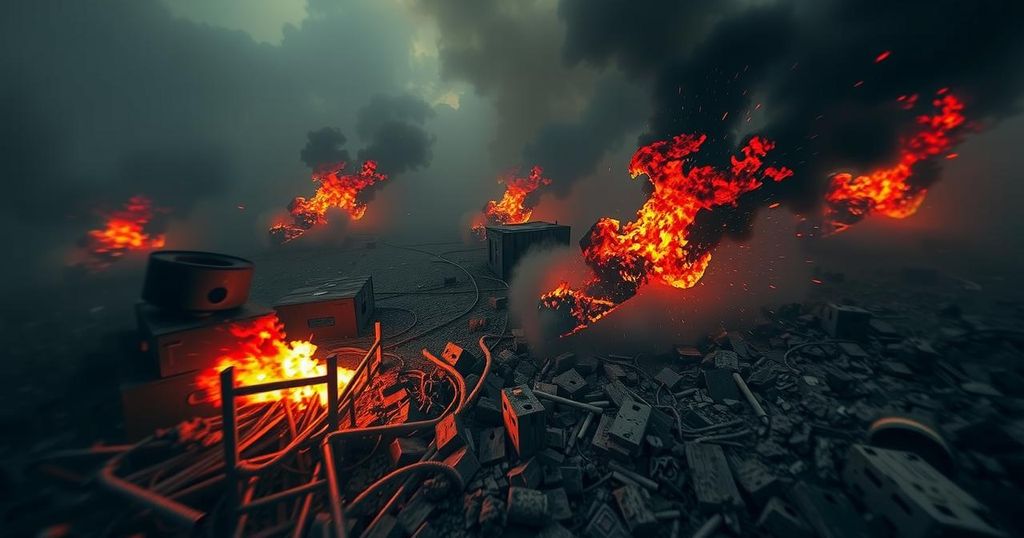Syrian Civil War: Escalation in Aleppo and Key Actors Involved

Syria’s civil war has intensified with a recent rebel offensive gaining control in Aleppo, prompting heavy government retaliation. Pro-government forces, aided by Russian and Iranian support, face renewed challenges from insurgent groups primarily supported by Turkey. The conflict features a diverse array of domestic and foreign actors, with ongoing implications for regional stability.
Syria’s prolonged civil war has recently captured international attention following a remarkable offensive by rebel groups that captured significant portions of Aleppo and other nearby regions. This escalation of conflict marks the most intense fighting since a ceasefire established in 2020. Key stakeholders, including government forces supported by Russia and Iran, have increased their military efforts through airstrikes against the insurgent groups, which are primarily backed by Turkey. The complexity of the conflict is heightened by the presence of various foreign powers maintaining military operations within the country.
The Syrian government, under President Bashar Assad, had maintained control over major urban centers with the help of Russian and Iranian forces. However, the recent losses in Aleppo signify a notable shift in power dynamics within the region. Iranian military support has been crucial, although Hezbollah has suffered setbacks in its prior engagements. Meanwhile, Russia’s focus has shifted to its commitments in Ukraine, which may have implications for its operations in Syria.
On the opposing side, the insurgent coalition led by Hayat Tahrir al-Sham has capitalized on the ongoing turmoil among pro-government forces. This group, previously affiliated with al-Qaida, has made efforts to present a more moderate front by distancing itself from its past. Turkish-backed military factions continue to engage in operations against regions held by U.S.-supported forces, further complicating the landscape. Additionally, the Kurdish-led Syrian Democratic Forces maintain significant control in the eastern regions and continue to confront remnants of the Islamic State group, supported by a contingent of American troops.
The Syrian civil war, which commenced in 2011, arose from widespread discontent against President Bashar Assad’s regime, leading to a multifaceted conflict involving various domestic and foreign factions. The ongoing struggle has resulted in a fragmented nation, with numerous groups vying for power and differing international interests complicating the prospects for resolution. Given the geopolitical implications of this conflict, the situation remains a focal point of international diplomacy and military engagement, particularly concerning U.S., Russian, Iranian, and Turkish interests in the region.
In conclusion, the recent insurgent advances in Syria, particularly in Aleppo, have reignited critical conflicts among the various key players involved in the civil war. With the Syrian government, supported by Russia and Iran, seeking to regain lost territory, and rebel forces bolstered by Turkish backing, the dynamics of this protracted conflict are continuously evolving. The involvement of multiple foreign powers adds layers of complexity, making a lasting resolution increasingly elusive.
Original Source: apnews.com








